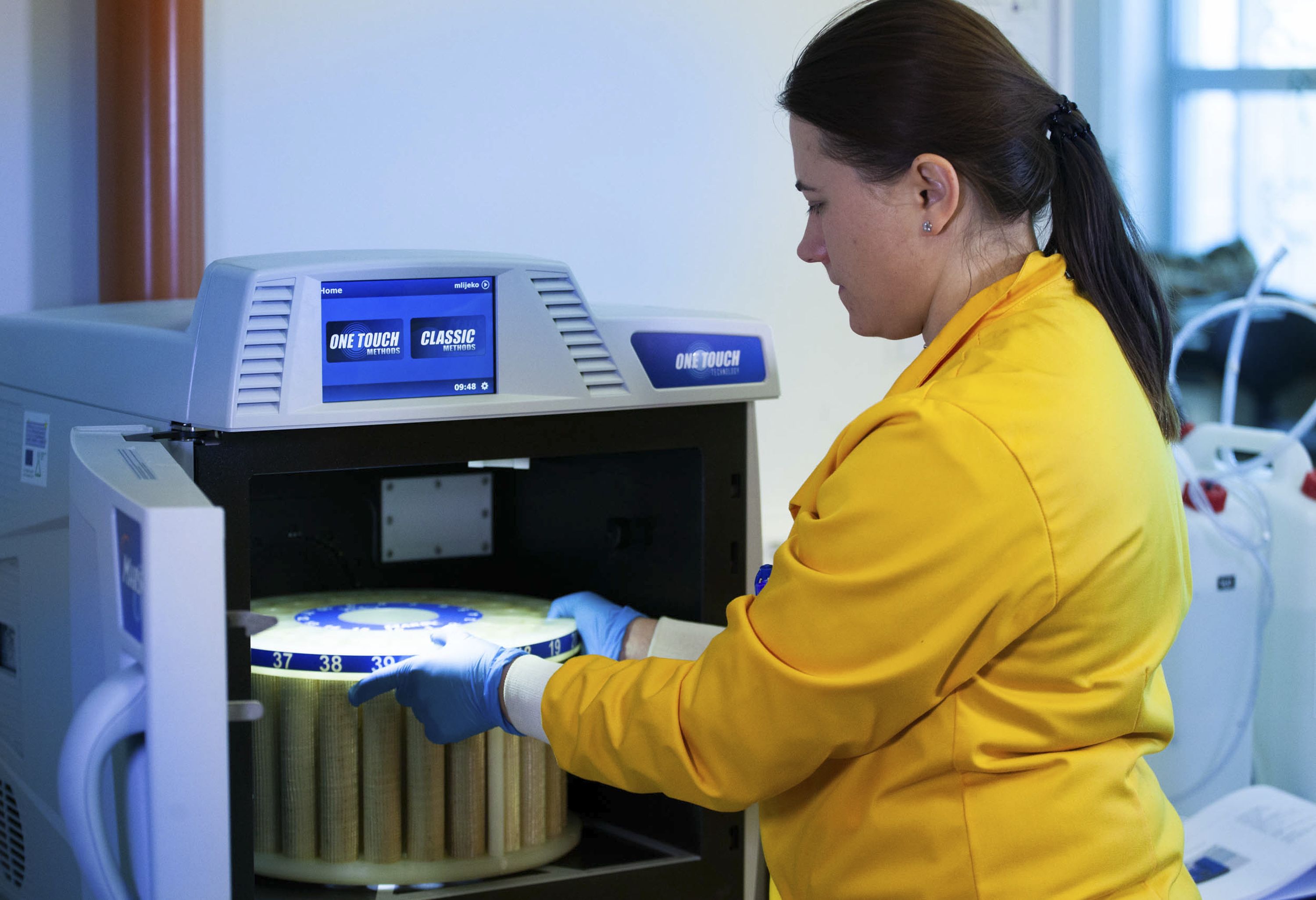Results Snapshot
Zeotex™ effectively removes heavy metals like cadmium, arsenic, and mercury from food, helping prevent harmful toxins from building up in your body.
Cadmium Removal: up to 90%
ZEOTEX treatment demonstrated a remarkable ability to eliminate an average of 90% of cadmium contamination from all tested samples.
Mercury Removal: up to 82%
ZEOTEX treatment significantly reduced mercury toxicity in raspberries by up to 82% compared to untreated controls.
Arsenic Removal: up to 75%
ZEOTEX treatment exhibited superior arsenic removal capabilities, outperforming control samples by over 75%.

Scientific Conclusion
In response to the growing frequency of food product recalls, researchers at FAZOS have determined that this study represents a potential pathway for developing novel strategies aimed at mitigating the risks posed to human health by heavy metal contamination.
Importance of Our Discovery
"The research offers promising potential for enhancing the quality of ingredients used in food production. Moving forward, focus should also be placed on processing these ingredients with high-quality detoxifiers made from zeolite minerals. Notably, the 100% natural, ultra-fine micronized ZEOTEX zeolite features the finest structure we've tested," said Prof. Dr. Popović.
Research FAQs
What health risks do mercury, cadmium, and arsenic pose?
Long-term exposure to mercury can lead to neurological issues such as mood swings, memory loss, and motor skill impairment, along with damage to the kidneys, lungs, and cardiovascular system. Cadmium exposure primarily affects the kidneys and can cause bone demineralization and increased cancer risk. Prolonged exposure to inorganic arsenic is linked to skin diseases, and cancers of the skin, bladder, and lungs, and can impair intellectual development in children.
Why is addressing heavy metal contamination crucial?
Reducing heavy metal contamination in food is crucial for protecting health, as these toxic elements can accumulate over time and cause severe, long-lasting damage to the body, including cancer, organ failure, and neurological disorders. ZEOTEX effectively reduces the levels of mercury, cadmium, and arsenic in food, offering a practical and efficient solution to minimize these health risks and ensure safer consumption.
Why is mercury in food dangerous, and which foods are most affected?
Mercury is a toxic heavy metal that can cause severe health effects, including mood swings, memory loss, anxiety, and damage to vital organs like the kidneys and lungs. It is widespread in the environment and can be found in soil, water, and air. The most significant risk of mercury contamination comes from seafood and fish, which have the highest mercury levels. However, it can also be found in various grains, such as rice, and in vegetables.
How can I reduce mercury in my food?
ZEOTEX is highly effective in removing mercury from various foods. For example, soaking white rice (round grain) in ZEOTEX for 30 minutes removes 91% of mercury, while the same treatment removes 82% of mercury from raspberries. ZEOTEX also significantly reduces mercury levels in other rice types and berries, making it an excellent method for reducing mercury exposure from food.
What is cadmium, and why is it in our food?
Cadmium is a heavy metal commonly used in industries such as battery manufacturing, paint production, and electronics. Due to industrial pollution, cadmium is increasingly present in the environment and can contaminate food. It is a known human carcinogen, with studies linking it to an increased risk of lung, bladder, and breast cancer. Foods most at risk of cadmium contamination include cereals, leafy vegetables, nuts, legumes, potatoes, and meat products.
How do I eliminate cadmium from my food?
ZEOTEX is remarkably effective at removing cadmium from food. For instance, soaking white rice (round grain) in ZEOTEX for 30 minutes removes 99% of cadmium, while the same treatment removes 99.96% of cadmium from raspberries. ZEOTEX also significantly reduces cadmium levels in other rice types and berries, making it a powerful tool for minimizing cadmium exposure through diet.
What is arsenic, and how does it end up in food?
Arsenic is one of the most toxic elements, naturally present in the environment. It enters the food chain through soil, water, and air, posing a severe health risk, especially when found in high concentrations in food. Rice is particularly at risk, with arsenic levels potentially more than ten times higher than other cereals. Long-term exposure to inorganic arsenic is linked to skin diseases, cancer, and developmental issues in children. Arsenic is also present in seafood and fish.
Can ZEOTEX remove arsenic and other heavy metals?
ZEOTEX is effective in reducing arsenic levels in food. For example, soaking white rice (round grain) in ZEOTEX for 30 minutes removes 76% of arsenic, and the same treatment removes 76% of arsenic from raspberries. ZEOTEX also reduces arsenic levels in other rice types and berries, offering a practical solution for lowering arsenic exposure from food.
Why choose ZEOTEX over traditional detox methods?
ZEOTEX offers a highly efficient solution for removing heavy metals like mercury, cadmium, and arsenic from food, outperforming traditional rinsing methods. By significantly reducing these toxic elements in various foods, ZEOTEX helps improve food safety and reduce the health risks associated with long-term exposure to heavy metals. Zeotex adsorbs other toxins and harmful chemicals but it wasn't covered it in research.






